Deb and the Curvy Kili Crew

People of all body types enjoy activity and nature, but don't always have equal encouragement and access. It can be difficult for bigger women to find the camaraderie of others who share similar perspectives, equipment, and strategies. It's worth highlighting the groups that provide these inclusive shared experiences.
Deb Malkin is a fat-positive massage therapist from the Bay Area who hiked Mount Kilimanjaro in Tanzania this March with the Curvy Kili Crew, a group of 20 plus-sized adventuresome women. We emailed her a few questions about her momentous trek for body-inclusivity in the outdoors. Interview has been edited for clarity.
How did you learn about the Curvy Kili Crew?
A woman named Christa Singleton had climbed Kilimanjaro in 2016 through WHOA Travel (an all-women travel company). While she summited at Stella Point, she was the only plus size woman on the trip and her pace was different from the others on the trip. So she wanted to return with some plus size women and posted about it on some plus size travel related Facebook groups. The response was overwhelming. She approached WHOA about doing a plus size specific trip and the Curvy Kili Crew was born. I was looking for a hiking trip to do for my 50th birthday. I had never considered climbing Kilimanjaro ever before, but I couldn't pass up the chance to go on an epic plus size adventure.
How did your bodywork practice inform your journey?
That's a great question. As a bodyworker, I knew how important it was to have muscle recovery tools, like massage balls, which I use for myself and in my practice. So I approached a small company called Rawlogy who makes cork massage balls, which are amazingly light for hiking. Marek and his company have become good friends and our best champions, helping us keep our bodies supple both on and off the mountain.
What was your training like?
My training was a mixed bag. I did lots of hiking, pilates, and weight lifting. Then I got injured in April in a movement class and spent two months rehabbing my knee. I trained some more, but in November—only 3 months before I left for Tanzania—my knee was struggling so much that I decided to get stem cell therapy. After which, I was not allowed to hike until I got to Kilimanjaro. My first day back hiking was our first day on the mountain.

Tell us about your gear.
I was so lucky that companies like Columbia, REI, and Prana make plus-sized clothing. My favorites were my Halle hiking pant from Prana for the first two days; REI's Screeline hiking tights were amazing and super comfortable to layer under when it got cold; and I had a wonderful Omni Heat puffer from Columbia. My secret lifesavers were the HEATTECH leg warmers from Uniqlo that I used on my arms and legs as an easy layer-on and -off. So many of us had the same Gregory pack. When one crew member found something that worked we would share it on the FB group. Also, my Cnoc Outdoors Vertex hiking poles were my constant companion and were total workhorses for all the rocky terrain.
Who helped you along the way?
Our crew was almost 100 people strong including the porters and guides. It takes a village. Trek2Kili creates an incredible experience for anyone wanting to climb Kilimanjaro. The porters carried food and water up the mountain. The drinking water was treated and used for our water bladders and bottles and food. We had eggs and toast and porridge, lots of rice, potatoes, chicken and the favorite was the soup at dinner. We had a zucchini soup that was maybe the best soup I'd ever eaten.
So many times, our guides and porters, described themselves as a part of our family and it really felt that way. Our lead guides Aboo and Andrew were incredible supports. And we had a number of women porters that were hired for our group and the sisterhood was strong. We all had a number of dance parties on the mountain that fed our souls.

Rama was my summit guide and he was a great friend, carrying my pack, and encouraging me to keep going. "Strong like Simba," he would say.
What was your greatest concern and how did you prepare?
Since my training was interrupted my biggest concern was staying free from injury. And I was concerned about altitude sickness. For both of these issues, the remedy was to hike my own hike—a message we heard a lot from the guides. And to stay hydrated. And while taking Diamox (altitude sickness prevention drug) wasn't the most fun, I think it definitely helped stave off any problems for me. I only had one day of nausea on the mountain.
What ended up being the most difficult part of the experience?
My greatest challenge was not having enough sleep. I knew I'd be exhausted, but I was both exhausted and sleepless. I could really feel the incredible difference between a night I got a half hour of sleep and a night I got three hours. If I could do that again, I would have packed some sleep medication.
Also, we had very intense winds that made hiking and sleeping difficult. The guides told us the week before there was no wind. The weather is something we've no control over. It was so windy we were all thankful that our toilet tends didn't blow over when we were in them!

Photo by Kathy McCready
Describe your summit experience.
Well, I did not reach the top. We headed out at midnight and I managed about three hours of climbing that night, after only about a half hour of sleep on top of a long day of hiking to get to Kibo Hut. My body was depleted and my "good knee" was troubling me. I am just about stubborn enough to have kept going but I knew I wouldn't have been able to descend or make the 9km hike that happened pretty much after the coming down, to get to the next camp. The time frame from the Rongai Route was a more gradual hike the first four days but a very tight schedule on days five and six and I ran out of time and energy. So I decided to go down and make my personal summit at over 16,000. Two of the women in our group reached the Gilman's Point Summit at 5,681 meters (18,638 ft).
I'm incredibly proud of myself for doing some deep listening to my body and choosing to turn around. As our guides say, you only have one life and it's not worth losing it for a mountain. All in all, it was an epic adventure and it only has made me more excited to explore hiking more and more back home in California. I loved the peacefulness that all day hiking brought me and I'm so grateful to have that experience in my body now. WHOA is doing another plus size Kilimanjaro trip next February and I'm the tiniest bit tempted to go again. You never know!









Leave a comment